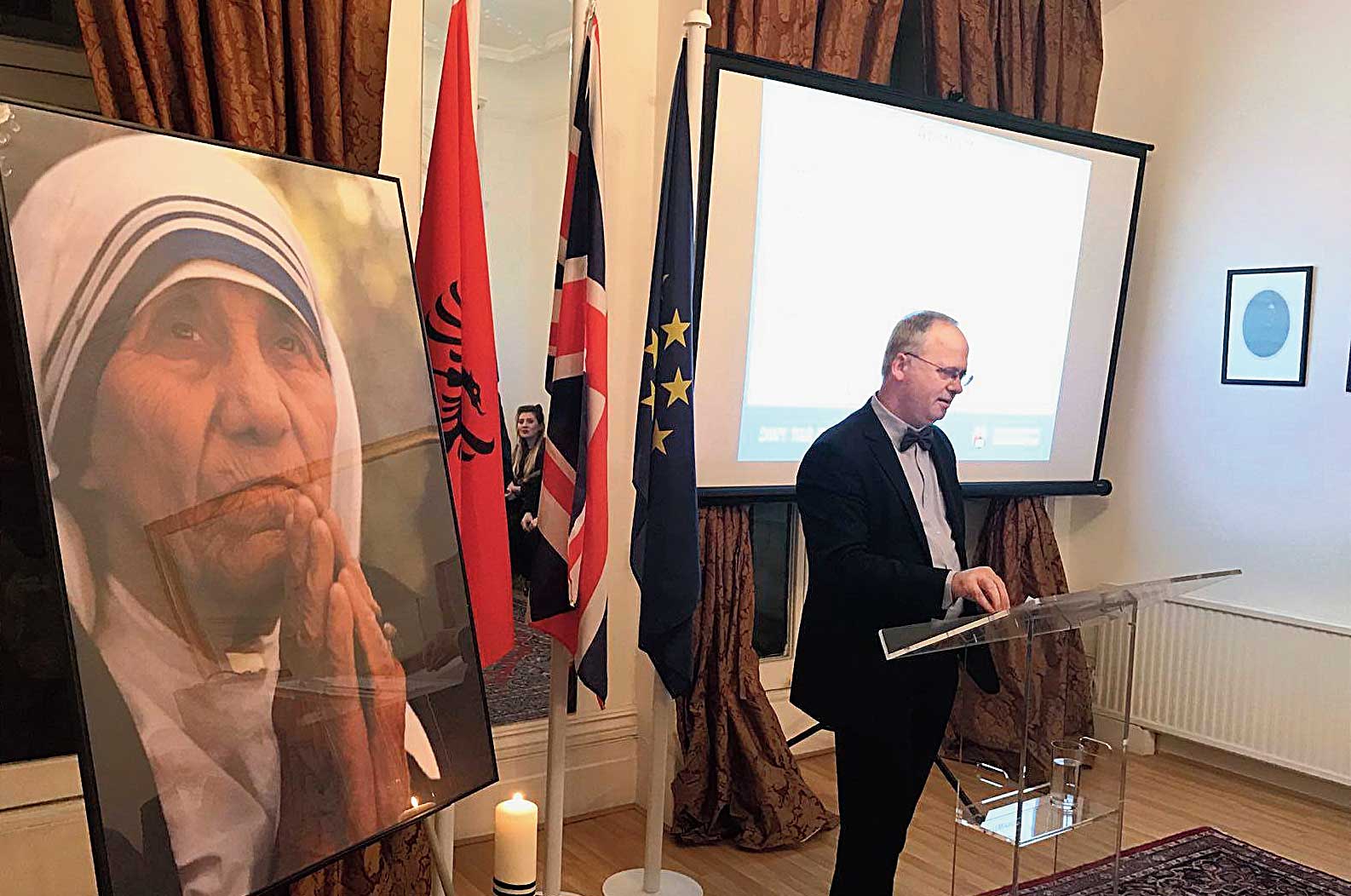When Mother Teresa was nine, her father’s murder had traumatised her and led to a lifelong struggle with “the dark night of the soul” and her eventual journey to Calcutta, new research suggests.
Gëzim Alpion, from the department of social policy, sociology and criminology at Birmingham University, talked to The Telegraph on Friday about devoting 20 years of research into Mother Teresa’s early personal experiences.
He feels those experiences hold the key to why she devoted her life to alleviating the suffering of the poor and dying in Calcutta.
“Mother Teresa is much deeper and more complex than we thought,” Alpion said.
Alpion, who like Mother Teresa is of Albanian origin, is considered “the most authoritative English-language author on Mother Teresa and the founder of Mother Teresa studies,” according to Birmingham University.
“In recent years, he has delivered over 50 keynote addresses, talks and lectures at international conferences and renowned universities in 15 countries.”
Alpion told this newspaper: “From the very beginning I paid attention to her roots. I went to her childhood and I saw to my horror that no one who had written about Mother Teresa had bothered to study the first 18 years she spent in Skopje in Macedonia, where she was born, because this was not considered important.
“I discovered that Mother Teresa (born in 1910 as Anjezë Gonxhe Bojaxhiu) had lost her father at the age of nine — and she had adored him. With his death she was shocked because there was such a void in her life.”
Nikollë Bojaxhiu was “killed because he was an Albanian patriot”, Alpion said.
“He was a philanthropist, a polyglot, the only Catholic member of the Skopje city council. He was killed because he was in favour of uniting the Albanian territories. In 1913, with the end of the Ottoman empire, Albania proper as a state was created but a lot of territories went to Greece, Macedonia, Serbia, Montenegro and so on.”
Alpion said “her father’s poisoning by Slavic nationalists in 1919 marked the beginning of Mother Teresa’s attempts to replace him with a divine father — Jesus — and the start of her lifelong doubts about the existence of God”.
“Her brother’s association with Benito Mussolini’s fascist army, and her concern about the safety of her mother and sister in communist Albania post-1945, caused her to never speak about her private affairs,” Alpion said.
“I have now discovered (that) from 1919 till 1922, she also lost eight very close relatives, including the only uncle she had. Death was so seminal to the first 12 years of her life. At the end of the day, what do you say to a child? ‘Look, your father went to heaven.’ This is also the beginning of the dark night of the soul.”
“The dark night of the soul” is a seminal theological concept in Christianity.
Alpion has written a paper on Mother Teresa for the journal Celebrity Studies, published by Routledge. His book, Rooting Mother Teresa: The Saint and Her Nation, will be published later this year.
“She was on good terms even with the Left government in the West Bengal of (Jyoti) Basu because this woman was a pragmatist: ‘You are communist; I am Catholic. I respect you; you respect me. We can work together’.”
Alpion’s research has taken him to Albania, Kosovo, Melbourne — where he discovered that Mother Teresa had a first cousin and an adopted sister — and Calcutta, where he addressed the sisters in the chapel in Mother House.
“Mother Teresa entered the religious life and chose India as her destination not simply or primarily to serve the poor but in the hope that, through them, she would discover the elusive God, as well as to get rid of her ‘dark night of the soul’. Her devotion to the poor was unwavering and genuine to the end,” Alpion said.
“The ever presence of death in her early years had a lifelong traumatic impact on her spirituality and relationship with family members, her nation and especially vulnerable people. Mother Teresa was never cured of her doubts about God; nonetheless, she always held sacred the dignity of every human being.”
Alpion says the “the people of Calcutta are right to be proud of Mother Teresa”.






